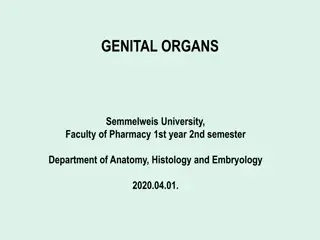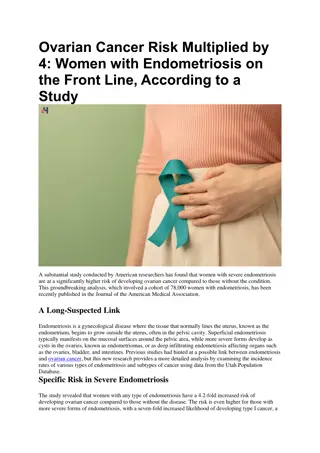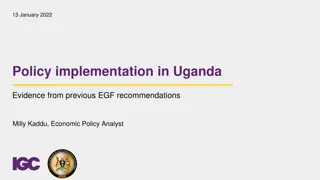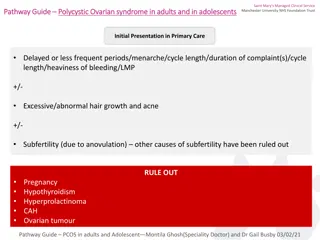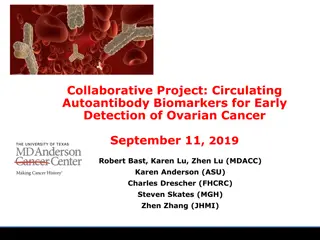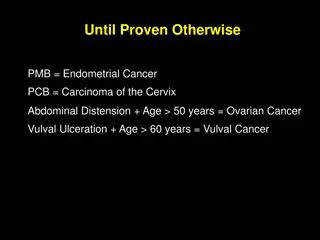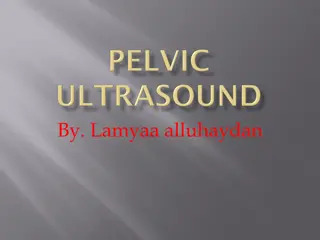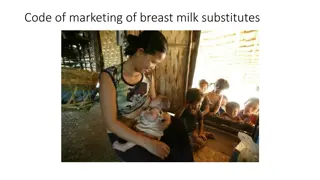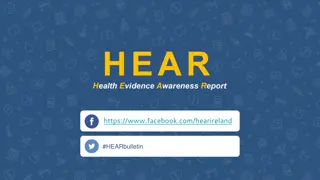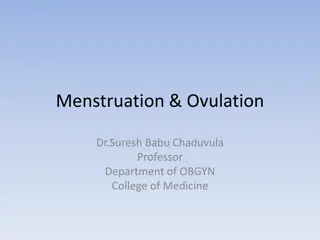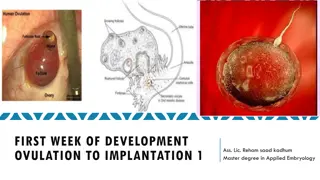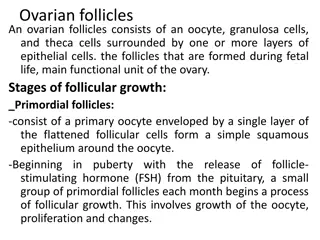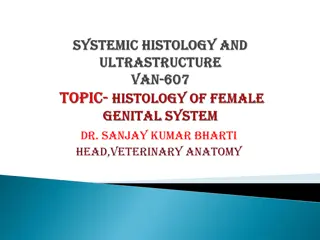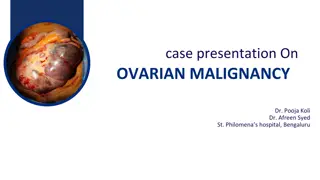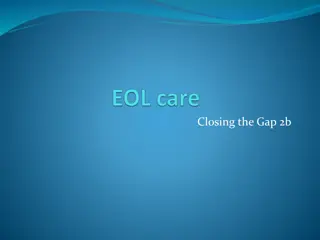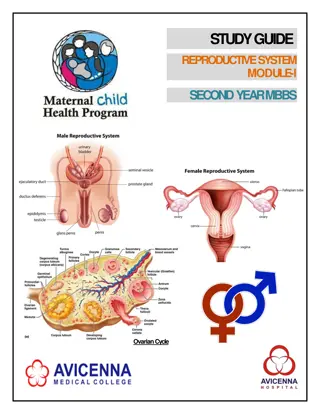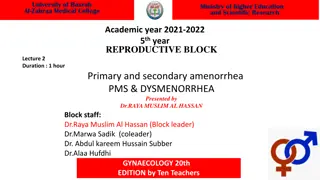EGF Role in Ovarian Steroidogenesis
The role of Epidermal Growth Factor (EGF) and its receptor (EGFR) in promoting ovarian steroidogenesis and signaling pathways in common carp. EGF's interaction with gonadotropins and its impact on steroid production, including progesterone and FSH-induced estradiol production, are explored. Studies on EGF in mammalian and non-mammalian ovaries are discussed, emphasizing its critical role in regulating gonadal functions.
Download Presentation

Please find below an Image/Link to download the presentation.
The content on the website is provided AS IS for your information and personal use only. It may not be sold, licensed, or shared on other websites without obtaining consent from the author.If you encounter any issues during the download, it is possible that the publisher has removed the file from their server.
You are allowed to download the files provided on this website for personal or commercial use, subject to the condition that they are used lawfully. All files are the property of their respective owners.
The content on the website is provided AS IS for your information and personal use only. It may not be sold, licensed, or shared on other websites without obtaining consent from the author.
E N D
Presentation Transcript
Welcome Indigent Committee Training Title 31 Chapter 34 & 35
Thank you for helping this project come together. Denise Gill Gooding County Susan Keck & Joe Larson Cassia County Elaine Schutte & Kristina Glascock Twin Falls County Michelle Emerson Jerome County Brooke Baird & Jolynn Drage - Blaine County Brenda Farnworth Lincoln County Katherine Rablin Camas County Mitzi Ramsey Minidoka County
Can you tell me if the county will stop receiving applications from CAU after March 1, 2022?
DISCLAIMER: We can only voice our own opinion and are not inclined to voice our legal opinion nor are we inclined to guarantee the accuracy of what you are about to see. RATING: This power point has not yet been rated.
Legislative Changes 1. Indigent application processing 2. Mental holds 3. Jail Medical
Indigent application processing At this time, we anticipate the volume of indigent applicant processing to remain at or near the same level as we are currently experiencing from the results of Medicaid Expansion. Hospitals may still submit applications for all un-insured patients, which will still need to be processed from start to finish. However, counties will now have 31-3505H as another denial reason, which should result in fewer approvals, more denials, and the same amount of time and resources to process the applications. The volume of applications may also ultimately depend upon the individual hospitals, as to whether they will use their time and/or resources to submit an application to CAU. Hospitals may choose to submit direct to the regular family Medicaid, if an ultimate denial is anticipated. Ida Link could be used but generally the hospitals call direct. The applications that are currently held in suspension will still need to be processed, which could take up to two years, or longer. Most counties have been working through their current suspended cases to resolve as quickly as possible, but county indigent administrative resources and potential obligation per cases in progress (i.e., # of current, suspended and appeal cases x 11k), should still be budgeted for the next 2-3 years, in addition to the county health district budgetary obligation. Only applications sent from hospital to CAU that were denied will be forwarded onto the county. CAU s workflow process has not changed.
I asked my Manager about this and I was told that our process has not changed as of right now everything will continue to be the same with CAU we will continue to send applications, but that you should contact your CAT because we don t know how that will affect the counties and they would be able to better answer that. Ken Carrillo Combined Application Unit Phone: (208)528-3770 E-Mail: SRCU-CntyhospApp@dhw.idaho.gov
For regular Medicaid & EMED not for Katie Becket etc.. Current Monthly Income Limits for Medicaid Household Size MAGI Adult Medicaid Children Age 0-19 1 $1,482 $2,040 2 $2,004 $2,759 3 $2,526 $3,477 4 $3,048 $4,196 5 $3,570 $4,915 6 $4,092 $5,634 7 $4,614 $6,353 8 $5,136 $7,072 Each Additional $523 $719 Elderly or Disabled Single $847 Elderly or Disabled Couple $1,211
Mental Holds 31-3505H (3) Notwithstanding any provision of law or rule to the contrary, no person in a commitment proceeding pursuant to chapter 3, title 66, Idaho Code, who is eligible for Medicaid or eligible for health insurance shall be eligible for financial assistance pursuant to this chapter. Thus, effective March 1,2022 counties are no longer responsible for the following costs associated with commitment proceedings: Psychiatric expenses, Medical expenses, Hospital expenses. However, there have been discussions with stakeholders (Health Board) regarding this change and how it will adversely affect them. While the intent of the legislators with H0316 was to limit eligibility for the county medical indigent program, title 66 (Mental Hospitalization) does not afford the hospitals the ability to file as a third-party application for Medicaid for the mentally ill, as chapter 35 does for medical hospitalization. This may need to be addressed with legislative changes to title 66. Additionally, if ARPA county funds are used effectively as of March 11, 2021, including mental health services, a significant reduction of mental holds could potentially be realized, saving not only county prosecuting attorney resources, but hospitalizations as well.
Jail Medical At this time, there will be little to no changes regarding county obligations for jail medical, and it should be budgeted for accordingly, as in the past.
Suspended cases The County Commissioners shall make an initial determination to APPROVE or DENY or shall hold in "SUSPENSION" an initial determination to deny an application.
(IF) the sole basis for the denial is that the applicant may be eligible for other forms of public assistance; Crime Victims Compensation, Worker's Compensation, Veterans benefits, Medicaid, Medicare, Supplemental Security Income, Third Party Insurance or other insurance. (IF) an applicant is subsequently determined to be eligible for other forms of public assistance, "as listed above", the applicant shall be denied. (IF) an applicant is subsequently determined "NOT TO BE ELIGIBLE" for other forms of public assistance, "as listed above", the application for financial assistance shall be approved. 31-3505h Beginning with the March 1, 2022 date of service and thereafter, there is no longer a need to hold new cases in suspension unless EMED hasn t completely processed. That is unless you can think of a need that I haven t thought of.
Like Feels a Lifetime! Cases placed in "Suspension" can take several years for a final decision from the other form of public assistance. Your county will still need someone to process and keep track of cases, even after March 1, 2022.
CAT Deadlines Has anything changed?
Each indigent has ONE CAT number per 12 month Cat year. However They may incur several incidents and the county may receive multiple applications on one person during a 12 month period.
A CAT YEAR DEFINED The 12 months beginningwith the first date of service or County approval date (pre-approval), whichever is first, and expiring 365 days later. Example: First date of service of 7/26/2022 Cat expiration date of 7/25/2023
Services can never be added outside of the 6 month time period of the original combined application. The Cat Board meets every 6 weeks to review claims. Once approved by the Cat Board, each claim may require up to 45 days for processing and submission to the state controller for payment. The Anniversary date is established upon the first case and does not change as county cases multiply during the CAT year.
NONMEDICAL INDIGENT ASSISTANCE How do we handle these applications?
Burial Costs Rent Power Bill Gas Bill Motel Bus Ticket Other The same as you have in the past!
Moving forward What does daily life look like for us?
Working with existing approved cases There will be no changes with approved cases as far as I have heard. We still need to process as before, and send anything over $11,000 to the CAT Board.
Issuing monthly statements As the Indigent statute is still in effect, we will continue to send monthly statements and attempt to collect on all cases.
Receiving payments from clients and collection agencies The process for receiving payments from clients may not change, depending on what each individual county does.
Releasing liens and working with title companies We will still be collecting as long as statute allows us to. As such, we will only release liens for clients who have paid off their debt, reached a settlement agreement with our board of commissioners and the CAT Board, or had a final denial on their case.
Bookkeeping for CAT reimbursements Our process for CAT reimbursements will not change, nor will our bookkeeping Again, Chapters 34 & 35 were not repealed.
Statute still exists, we will continue on as we always have, of course on a smaller scale but normal processes will not change. Some expect more medical reviews and more upset clients who won t qualify for help. However, the only medical reviews that I foresee are for the EMED applications that H&W denied so that we may know where the point of stabilization is. For this, maybe a How to Deal With Difficult People course is in some of our future trainings. Stay the course until we hear otherwise.
Thoughts moving forward 1. Potential court challenges to the recent changes may occur if hospitals determine the changes adversely affect them. 2. Additionally, while we have the legislative changes in H0316 in place now to become effective Mar 1, 2022, be on the look-out for further legislative changes in the upcoming session, that may include the entire repeal of Chapter 35 Hospitals for Indigent Sick. 3. With the recent Supreme Court rulings to uphold the Affordable Care Act, there may be legislative support to consider repealing Chapter 35 in the next legislative session, and if passed with an immediate effective date prior to Mar 1, would supersede the current legislative changes ..hmmmm 4. The county indigent program will nonetheless be in a state of transition over the next few years.
Lastly, please encourage and support your county indigent directors and staff throughout the transition. Monitoring case-loads, keeping an eye on potential county obligation for current cases and keeping up with proposed legislation will help counties navigate the changes.




